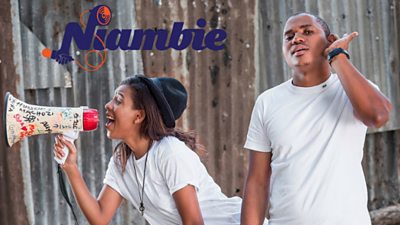Downloads
Niambie (Tell Me) is a youth-led radio and online discussion programme that currently reaches 2.5 million people. It aims to increase young peopleâs civic and political engagement in Tanzania. New research has found that the programme provided valuable information about the elections and voting process, addressed apathy (encouraging many to participate in various stages of the process) and inspired some listeners to maintain peace during the elections.
Publication date: August 2016
The project
Tanzaniaâs 2015 general election was the fifth to be held since the restoration of a multi-party system in 1992. Since then, the youth population has doubled, and today over half (51%) of Tanzanians are 19 years old or under. With this surge in the number of young people, the October 2015 election was pivotal for the future of young Tanzanians and the history of the country.
In 2014 ±«Óătv Media Action conducted formative and baseline quantitative research to understand young Tanzanians and their engagement with the countryâs democratic processes. The research revealed relatively low levels of youth participation in civic and political activities, low knowledge about political affairs, and cynicism about local and national governmentsâ responsiveness. These learnings helped shape efforts to support young Tanzanians play a constructive role in their countryâs democratic processes.
Research methodology
±«Óătv Media Action conducted research with young audiences of Niambie in March 2016 to understand their views on the programmeâs role in the run up to and during the 2015 general election period in Tanzania.
14 focus group discussions were held across Dar es Salaam, Manyara, Mbeya, Mwanza and Tanga among 106 young people (aged 18â30) who listened to Niambie and the local programmes ±«Óătv Media Actionâs three partner stations (Times, Clouds and Zenj FM) broadcast. Three in-depth interviews were also held with partner station staff that ±«Óătv Media Action had trained.
Key findings
- Niambie was perceived to have provided valuable voter information and encouraged young people to register to vote and critically consider candidatesâ and partiesâ policies and programmes prior to voting.
- Niambie addressed apathy among some listeners, motivating them to participate in various stages of the election process.
- Niambie encouraged young listeners to maintain peace and provided advice on how to do so throughout the election period (especially during and after voting). Listeners recalled the programme reiterating they stay away or depart from polling venues after casting their votes and avoid wearing clothes or colours that show affiliation with a certain party to prevent stirring strife.
- The programme was also valued for its impartiality. Listeners said Niambie maintained an impartial stance throughout the elections, enabling trust in its content and distinguishing it from other programmes.
- Training provided by ±«Óătv Media Action to its three partner stations was reported by journalists to have improved the quality of the programming they provided during the elections, as well as their general journalistic skills. Trainees particularly found the editorial values training useful and applicable to their election-related work.
- Unlike their counterparts in the Mainland, young listeners in Zanzibar experienced an election re-run in March 2016 after the Zanzibar Electoral Commission annulled the results of the October 2015 election. While many noted ±·Ÿ±ČčłŸČúŸ±±đâs strength in providing voter information and education, others felt the programme left them behind during the re-run, as its coverage centred on other post-election issues.
Implications
This study offers useful lessons for the media and development sectors about the ways in which media platforms can serve young people during such a critical political moment.
- Social and political content can be effectively combined with popular music and entertainment. Niambie listeners found this engaging and recognised that the programme was âfor themâ. It provided a platform for their voices to be heard on nationally-relevant discussions.
- Dynamic radio programmes can engage young people in âseriousâ topics such as the importance of voting. Niambieâs youth-led format and its impartial stance engaged listeners in topics that mattered to them. Listeners recognised and acknowledged the voices of both male and female presenters of the programme as one of theirs. As well as being motivated by them to take part in democratic processes in a constructive way, they also reporting being inspired to aspire to similar positions of responsibility.
- Partnerships are beneficial. Local media partners found their collaboration with Niambie beneficial and the training received from ±«Óătv Media Action applicable to their work during the elections. Beneficiaries reported that the training improved their editorial standards and allowed them to provide accurate and balanced information that met audience needs during the elections. These improved standards were noted by young listeners of Niambie and of the local programmes ±«Óătv Media Actionâs partners broadcast.
